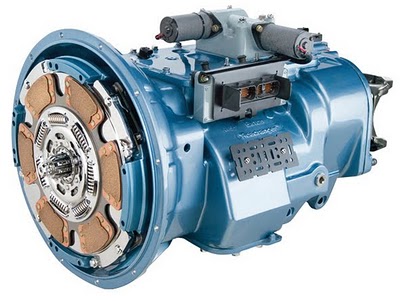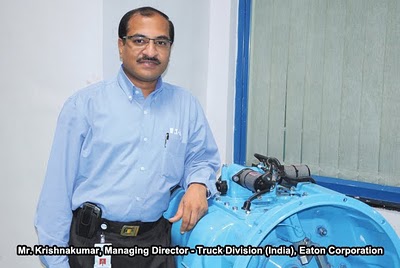MT is the most efficient transmission available. This lends itself to providing good fuel economy for the vehicles it is employed in. The efficiency of MT is dependent on the load applied. MT is very easy to manufacture having very few parts. It is reliable and easy to maintain. Its main weakness is that it is less easy to drive than an AT, especially in congested traffic, as it requires the driver to operate the clutch for each gear shift.
Gear shifts are sometimes not smooth. It causes discomfort for passengers who will notice an interruption of engine torque to the wheels when the transmission is between gears. In severe situations an interruption of torque can cause dynamic instability of the vehicle resulting in loss of control.
AT has many advantages, including ease of driving and very smooth shift quality. The choice of gear is determined by a transmission control unit (TCU) which will ensure that the best gear is chosen for the vehicle road speed depending on whether the driver requires fuel economy or performance. Drivers are willing to pay a premium for this type of transmission even though performance and fuel economy are inferior to MT.
If a transmission could have the benefits of both MT and AT and the weaknesses of neither, this would introduce a third option to segment the market which is Automated Manual Transmission (AMT). Automated mechanical transmissions are interesting options for operators, since they combine the fuel economy and performance of manual systems with the easy-to-drive convenience of automatics.
Eaton Corporation’s truck business has pioneered the concept of AMT the world over for the last 25 years. “We have more than 20 million miles of on-road experience in AMTs”, says Mr. Krishnakumar, Managing Director – Truck Division (India), Eaton Corporation. Eaton’s AMT business has been very successful in many parts of the world, including North America, South America, Europe, Australia and China.
AMTs were first introduced by Eaton in 1985, and what is sold today is the latest version of the product. UltraShift PLUS, the current generation of AMTs offered by Eaton, are automated with the use of a new self-adjusting electronic clutch actuator for fast, smooth engagements. The transmissions also share a Hill Start Aid feature to prevent rollbacks on grades. The UltraShift PLUS transmissions feature new automated clutch technology and intelligent shift selection software that employs grade sensing, weight computation, and driver throttle commands to make intelligent shift decisions for efficient, safe and profitable vehicle performance.
The UltraShift PLUS transmissions feature new automated clutch technology and intelligent shift selection software that employs grade sensing, weight computation, and driver throttle commands to make intelligent shift decisions for efficient, safe and profitable vehicle performance.
Mr. Krishnakumar says: “We are currently working with Indian OEMs on AMTs for their truck and buses. We feel that AMT is the right technology for Indian market and can be easily adapted. Studies have revealed that AMTs result in improved fuel efficiencies and good shift feel. It is suited for a broad range of commercial vehicle applications”.
In India, Eaton currently has the manual transmission and then the automatic on commercial vehicles. Most trucks and buses run on manual transmission with automatics getting increasingly popular in low-floor city bus segment. All Volvo city buses come fitted with automatic transmissions. Some of the new city buses supplied to DTC and to a few other metros by Tata Motors and Ashok Leyland are fitted with automatic transmissions. There is an increasing shift towards automatic transmissions in city bus applications.
But AMT is not a competing technology, according to Mr. Krishnakumar. Also as a technology AMT is not completely new to the Indian market. The iBus from Ashok Leyland was fitted with an AMT but of a different technology. “What is very important for an AMT is the integration of the transmission with the engine and the overall system. This is where Eaton comes with rich experience of working with global OEMs. Our aim is to give best value to the customer, and we feel we can offer the most cost-effective solution through AMTs”, he says.
Eaton Corporation’s truck group started its operations in India in 2007. The truck transmissions plant is Eaton’s first greenfield manufacturing facility in India. The plant which was commissioned in 2007 began operations in 2008. It manufactures gears, shafts and assembles medium and heavy truck transmission systems to serve the Indian and overseas markets. Eaton has been supplying the trucking industry with products designed to improve vehicle performance and power, and increase profitability. Across the world, Eaton works with fleet owners and trucking companies to produce the highest quality drivetrain and safety systems available to address the industry’s most pressing needs.
In the manual transmission business, Eaton is currently supplying to major OEMs in India, including Tata Motors and Mahindra Navistar. The company has created capacities to cater to the demands of domestic OEMs and also plans to look at exports as an opportunity. The products manufactured in India have also be indigenised to a large extent.
“Currently, we are working with some of the Indian OEMs on Hybrid and AMT solutions. It is in very advanced stages and the results are very encouraging. The best part of AMT solutions is that it can be integrated with a diesel engine and CNG engine and the same platform can be used to build hybrids”, adds Mr. Krishnakumar.
Initially, the company plans to import AMTs as fully-built units, and if it gains in volumes it will then consider local production. Eaton is targeting both the bus and truck segment for AMTs. Within the bus segment the city bus is one segment, which the company is looking at very closely.
Apart from buses, AMTs are also ideally suited for tippers, refuse trucks and other typical stop-and-go kind of applications. From a technology standpoint and providing the best overall cost of ownership to customer, AMT is the best solution for the Indian market, according to Mr. Krishnakumar.
